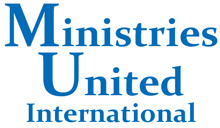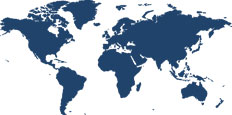| |
The Challenge
Did you know that over half a million children die each year because of diarrhea that is caused by sewage in their drinking water? This is because over two billion people in the world deficit in open public, and/or use toilets that are improperly plumbed which empty raw sewage near drinking water sources. Unsanitized water can have a devastating effect in an entire city and its populating people. Many diseases are directly caused by unsanitized water. Ingestion of contaminated water, which is called a "Water-borne Disease," is just one of four categories that cause sickness and death. These four categories include:
Water-borne diseases, which are caused by the ingestion of water contaminated by human or animal feces or urine containing pathogenic bacteria or viruses. These diseases include cholera, typhoid, amoebic and bacillary dysentery and other diarrhoeal diseases.
Water-washed diseases, which are caused by poor personal hygiene and skin or eye contact with contaminated water. These diseases include scabies, trachoma and flea, lice and tick-borne diseases.
Water-based diseases, which are caused by parasites found in intermediate organisms living in water. These diseases include dracunculiasis, schistosomiasis, and other helminths.
Water-related diseases, which are caused by insect vectors that breed in water. These diseases include dengue, malaria, and yellow fever.
Today the most common diseases found are Cholera, dysentery, hook-worms, Polio and Gastroenteritis.
Where are the diseases found?
These diseases are found in developing countries where there are shortages of clean drinking water. The countries include many of the countries in South America and also in Africa. These countries suffer from poverty, and they cannot afford proper sanitation and waste disposal.
Due to the effects of millions of lives lost with the various outbreaks of The Black Death or infamous pandemic of bubonic plague - modern civilizations learned a grave lesson and solutions to eradicate these diseases by planning first the infrastructure of sanitation systems. But in areas of poverty, where resources are low, and the culture of a mass populated area continues to contribute to their unhealthy condition, the solution to the diseases in providing clean water spans more than just digging wells or building restrooms. Building large wastewater treatment systems and facilities require a large investment in funding land, operation, infrastructure design, and educating the community.
A Solution Opportunity MUI
Having access to basic clean water, educating on the importance of hygiene and improving management of raw sewage saves lives. Improved sanitation on a grand scale contributes to social and economic effects that benefit
Sanitation systems
Creating sanitation infrastructure and public services that work for everyone and that keep waste out of the environment is a major challenge. The toilets, sewers, and wastewater treatment systems used in the developed world require vast amounts of land, energy, and water, and they are expensive to build, maintain and operate. Existing alternatives that are less expensive are often unappealing because they don’t kill disease-causing pathogens, have impractical designs, or retain odors and attract insects.
Our Strategy & Approach - Innovative Water filtering
We immediately begin to assess the situation to determine the most appropriate actions to take based on the area, resources, political/government control, and economics. Through our joint communication and disaster response process, and partnering teams already on the ground - our goal is to provide assistance such as funding through proposals, technical assistance, training, mentorship, food, clothing, blankets, shelter and emotional support. Eligibility for assistance is not limited to one type of organization. Depending on the situation, networks, indigenous organizations and local evangelical humanitarian agencies. We believe in working together in a united effort ensures a better outcome when it comes to the aid of others in the US and globally.
Partners
We bridge communities, churches, and businesses in being a solution provider and applying opportunities of volunteerism, financially funding and contributing in their social and global responsibility.
Developing Country Network
As our partners increase, our collaboration and efficiency efforts increase.
|
|
|



